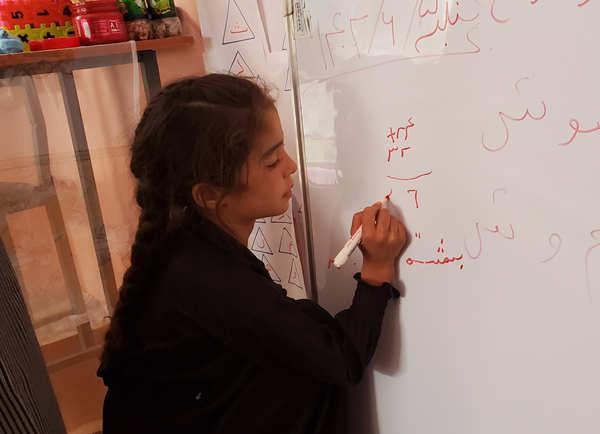- Home
- Education
Education

In light of the persistent social and economic challenges, it is imperative to undertake comprehensive awareness campaigns and grassroots interventions, alongside providing effective and sustainable support, to meet the educational needs of Afghan children, adolescents, and adults. Since 2005, SBOrganization has maximized all available resources, seized every opportunity, and actively engaged in advocacy efforts to foster education among Afghans. Operating across all 34 provinces, we have spearheaded initiatives to assist schoolteachers, principals, and students, while also collaborating with local religious leaders and community influencers, including government officials, to enhance educational opportunities nationwide.
Through partnerships with local school councils (Shuras), SBOrganization facilitated the reopening of 125 shuttered schools between 2009 and 2012, enabling 209,251 students and 2,354 teachers to regain access to education through school safety initiatives. We have conducted capacity-building exercises for Civil Society Organizations (CSOs), Maliks, and community elders, mobilizing them to champion school safety, child protection, and educational access in remote areas. Since 2002, SBOrganization has trained 6,401 members of CSOs, Maliks, Mullahs, and Community Development Councils (CDCs) on community mobilization, child protection, classroom monitoring, and other initiatives aimed at promoting education.
In collaboration with UN agencies, Save the Children International (SCI), the European Union (EU) via Terre des hommes (Tdh), the Central Asia Institute (CAI), and USAID, SBOrganization has implemented over 30 projects nationwide, providing support to public schools and Community-Based Education (CBE) and Accelerated Learning Centers (ALCs). We have conducted training sessions for 128,484 schoolteachers and 15,400 principals on various capacity-building topics since 2004. Additionally, our current coverage extends to 50,598 students across 1,611 CBE and ALC classes in several provinces, with 71,083 students having already benefited from these classes between 2004 and 2022, supported by UNICEF, SIDA through SCI, and CAI.
In efforts to enhance the learning environment, we have provided clean water, school supplies, hygiene kits, and refurbished classrooms to students attending public schools since 2009, resulting in the enrollment of 189,188 students through public awareness campaigns. Major contributors to this initiative include the Malala Fund, Afghanistan Girls Learning Education (AGE) project through CAI, Global Partnership for Education (GPE) via UNICEF, and UNICEF’s Education Cannot Wait (ECW) programs, which continue to address educational needs in several provinces.
The Story of a Second-Grade Student, Baheshta.

Beheshta’s Story
Beheshta, a nine-year-old resident of Mahal Mahbas Village, Baharak District in Badakhshan, attends second grade at the local community-based school. Initially, her teacher noticed signs of distress in this bright child and promptly alerted the AGE Child Protection (CP) team. Following a discussion with Beheshta’s parents, her case was documented in the CP database, leading to her referral for medical assessment. Subsequently, she received care in Fayzabad, the provincial capital, under the supervision of Dr. Viktor Naziri, a urologist, who diagnosed her with kidney and bladder issues. With prescribed medication and regular follow-up appointments, Beheshta’s health gradually improved.
Before her treatment, Beheshta faced significant challenges, enduring social isolation from her classmates and exhaustion within her family. “I felt sad and isolated,” she recalled. However, thanks to the intervention initiated by her teacher, Beheshta’s overall well-being flourished. She embraced school with newfound joy, actively engaging in classroom activities and forming friendships with her peers. Expressing gratitude for the support provided by the Community-Based Education (CBE) program, Beheshta’s father, Borhanuddin, emphasized their family’s appreciation.
Empowered by her transformative experience, Beheshta aspires to become a doctor, aspiring to offer free medical assistance to underprivileged children in her community. Today, she is recognized for her academic prowess, excelling in reading, writing, arithmetic, and problem-solving. Beheshta’s journey epitomizes resilience and the transformative power of education and healthcare, underscoring the positive impact of community support and intervention.

